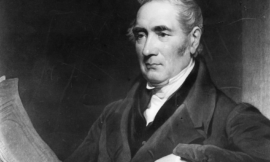John Howard (1726-1790) was a prominent English philanthropist and prison reformer whose work in the 18th century had a profound impact on the conditions and administration of prisons throughout Europe. His tireless efforts to improve the treatment of prisoners and to promote humane conditions within jails earned him widespread recognition and a lasting legacy in the field of prison reform.
Early Life and Background
John Howard was born on September 2, 1726, in Enfield, England, into a wealthy family. After the death of his mother, Howard was sent to boarding school and later apprenticed to a grocer. However, his inheritance from his father’s estate allowed him to pursue other interests, including travel and philanthropy.
Motivations for Reform
Howard’s journey into prison reform began with personal tragedy and a strong sense of duty. After his first wife died shortly after their marriage, he dedicated himself to a life of philanthropy. His appointment as High Sheriff of Bedfordshire in 1773 was a turning point. During his tenure, he was shocked by the deplorable conditions he encountered in local prisons.
Prison Conditions in the 18th Century
Prisons in the 18th century were notorious for their appalling conditions. Overcrowding, lack of sanitation, disease, and corruption were rampant. Prisoners often had to pay for their own food and bedding, and many were held indefinitely without trial due to administrative inefficiencies.
Howard’s Reforms and Advocacy
Howard began his reform efforts by inspecting prisons in England, meticulously documenting the conditions and the treatment of inmates. His findings were detailed in his seminal work, “The State of the Prisons in England and Wales,” published in 1777. This book provided a comprehensive and shocking account of the state of the prison system and called for significant reforms.
Key Reforms Advocated by Howard:
- Improved Sanitation: Howard emphasized the need for clean, well-ventilated cells to prevent the spread of disease. He advocated for regular cleaning and the provision of adequate water and sanitation facilities.
- Diet and Clothing: He argued that prisoners should be provided with sufficient food and proper clothing to maintain their health and dignity.
- Medical Care: Howard called for the provision of medical care for prisoners, including regular visits by physicians and the establishment of prison infirmaries.
- Separation of Prisoners: He recommended the separation of prisoners by category, such as separating those awaiting trial from convicted criminals, and the separation of men, women, and children.
- Work and Rehabilitation: Howard believed that prisoners should be given the opportunity to work and receive education and training to aid in their rehabilitation and reintegration into society.
Travels and International Influence
Howard’s commitment to prison reform extended beyond England. He traveled extensively across Europe, visiting prisons in countries such as France, Italy, Germany, and Russia. His observations and recommendations were published in subsequent editions of his book, highlighting the universal nature of the issues and advocating for international standards in prison management.
Legacy
John Howard’s work had a significant and lasting impact on the penal system. His meticulous documentation and passionate advocacy raised awareness about the dire conditions within prisons and inspired legislative and administrative changes. Some of the immediate impacts of his work included the passage of the 1774 Gaol Act in England, which mandated improvements in prison sanitation and health.
Recognition and Memorials:
- The Howard League for Penal Reform: Established in 1866, this organization continues Howard’s mission of advocating for humane and effective penal policies.
- Memorials: Howard is commemorated in various ways, including statues, plaques, and institutions named in his honor. His legacy is particularly honored at St. Paul’s Cathedral in London, where a monument was erected in recognition of his contributions.
Jedburgh Castle Jail: Jedburgh Castle Jail, designed by architect Archibald Elliot and completed in 1823, was influenced by Howard’s principles. It was constructed as a Howard Reform prison, aiming to implement the humane conditions and reformative ideals that Howard championed.
Conclusion
John Howard’s relentless advocacy for prison reform fundamentally changed the way prisons were perceived and managed in the 18th century. His work laid the groundwork for modern penal reform movements and continues to inspire efforts towards more humane and effective correctional systems worldwide. Howard’s legacy is a testament to the profound impact that one individual’s commitment to justice and human dignity can have on society.



